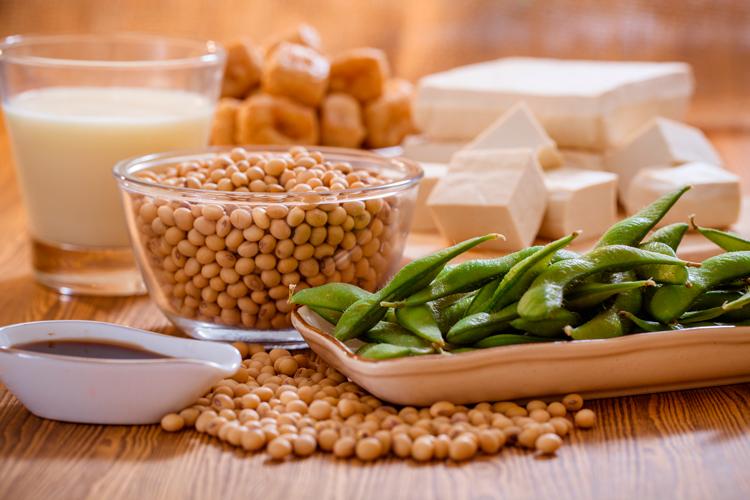
Eating tofu and foods rich in isoflavones helps reduce the risk of developing coronary heart disease (CHD), according to data from three large cohorts. This cardioprotective benefit is pronounced in younger women and postmenopausal women who do not use hormone replacement therapy.
“While these associations warrant replications in other populations, as well as in intervention studies on cardiovascular disease (CVD) risk factors, the present study overall implied that tofu and other soy products could be incorporated into overall healthy plant-based diets to facilitate the prevention of CHD,” the authors said.
The observational analysis included 74,241 women from the Nurses’ Health Study (NHS; 1984–2012), 94,233 women from the NSH II (1991–2013), and 42,226 men from the Health Professionals Follow-Up Study (HPFS; 1986–2012), all of whom were free of CVD and cancer at baseline. There were 8,359 incident CHD cases recorded over 4,826,122 person-years of follow-up.
For most participants, isoflavone intake was between 0.11 and 4.24 mg/day; median intake at the midpoint of follow-up was 0.34 mg/day in NHS (1998), 0.36 mg/day in NHS II (1999), and 0.43 mg/day in HPFS (1998). In all cohorts, individuals with higher levels of isoflavone intake exercised frequently, ate a lot of fruits and vegetables, and had better diet quality. At the midpoint of follow-up, 4.1 percent of participants overall consumed >1 serving of tofu weekly.
In multivariable-adjusted Cox models, the highest vs lowest isoflavone intake quintile was associated with 13-percent lower CHD incidence (pooled hazard ratio [HR], 0.87, 95 percent confidence interval [CI], 0.81–0.94; p=0.008). [Circulation 2020;141:1127-1137]
Greater consumption of tofu also conferred protection against CHD (≥1 serving/week vs <1 serving/month: pooled HR, 0.82, 95 percent CI, 0.70–0.95; p=0.005). This protective benefit, however, was not observed for soy milk (pooled HR, 0.87, 95 percent CI, 0.69–1.10; p=0.41).
On further analyses, the favourable association between tofu and CHD risk was mostly evident among younger women before menopause and postmenopausal women not on hormone replacement therapy (p=0.002).
“Several biological mechanisms can be proposed to explain the putative beneficial effects of isoflavones on CHD,” the investigators said.
The compounds may help reduce low-density lipoprotein oxidation, as well as produce bioactive compounds that benefit human health, such as Faecalibacterium prausnitzii and Bifidobacteria, which have anti-inflammatory properties. Meanwhile, tofu contains several bioactive components, including fibre and minerals, that may act synergistically with isoflavones through various pathways to modulate CHD risk. [Diabetes Care 2011;34:1946-1948; J Nutr 2005;135:2786-2792; Proc Natl Acad Sci 2008;105:16731-16736; J Nutr 2013; 143:1950-1958]
In contrast, soy milk may contain added sugar, emulsifiers and other constituents that potentially mask the protective effects of isoflavones on CHD risk to certain extent, the investigators explained. [Nature 2015;519:92-96]
In terms of the divergent associations of tofu with CHD by menopausal status and hormone use, the investigators explained that isoflavones may function as oestrogens when circulating levels of this hormone are low and subsequently exert oestrogen-like effects. [Nutr J 2008;7:17]
In a linked commentary, Drs Mercedes Carnethon and Sadiya Khan from the Northwestern University Feinberg School of Medicine in Chicago, Illinois, US, cautioned against making recommendations on whether adults should increase their intake of soy products based on results of the current observational study, however well done and robust it might be. [Circulation 2020;141:1138-1140]
“The haste to generate dietary recommendations for public consumption disrupts the thoughtful consideration of what observational studies of diet are, and most importantly, what they are not… A responsible approach is to capitalize on one of the limitations of observational studies of diet, which is the clustering of healthful behaviours,” which means that people who eat plant-based diet are more likely to have an overall healthy lifestyle, according to Carnethon and Khan.
“When counseling on the intake of soy products for CHD risk reduction, highlighting the potential benefits of soy intake alongside other dietary guidelines can leverage the strengths of well-done observational research without overpromising the benefits of specific behaviour changes,” they said.